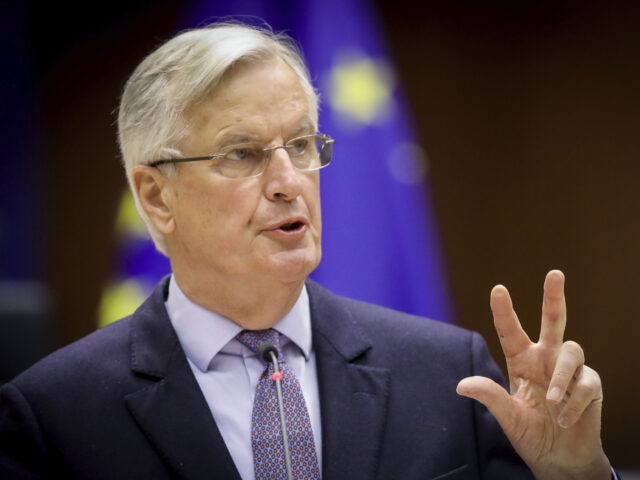Brexit Villain Michel Barnier is New French Prime Minister After Macron’s Bungled Snap Election
 AP IMAGES
AP IMAGES
Top Eurocrat Michel Barnier is the new French Prime Minister, appointed 60 days after President Macron’s snap election which threw French politics into disarray with a three-way-split Parliament.
Veteran French centrist-globalist politician Michel Barnier, who has held senior positions in the French government and European Union since 1993 is Emmanuel Macron’s pick to be the new Prime Minister, the role tasked with the day-to-day running of the state at the direction of the President. The role has been technically vacant 51 days since the previous Prime Minsiter Gabriel Attal resigned on July 16th, the longest interregnum since the Second World War.
While an experienced political operator and well known across Europe as the hard-nosed Brexit negotiator who — critics say — was charged with punishing Britain for having the temerity to withdraw from the European project, Barnier has an uphill struggle on his hands. The French Parliament is left without any majority or realistic hope of coalition-building to achieve one after President Macron’s gambit on a snap national election earlier this year left it split three ways between his globalist centrists, the hard left, and the populist right.
While Marine Le Pen’s National Rally (Rassemblement National, RN) have sworn to be vigilant and to bring down any government that doesn’t meet their own demands, perhaps the New Popular Front (NFP), an electoral alliance of all of France’s left-wing parties from the soft social democrats all the way to the communists, is to be his greatest hurdle. Due to the unusual French two-stage electoral system their group got the most seats — although Le Pen’s right-wing populists got the most votes by a considerable margin — and the NFP consequently demanded the right to pick the next Prime Minister.
Their pick, socialist Lucie Castets, having been snubbed, they are likely to be very hostile to the globalist centre-right Barnier, who now has to build a government and recruit ministers.
As things stand, border control populist Le Pen says she won’t immediately vote against Barnier, but will first wait to see what his proposed policy platform is. The RN made clear earlier this week as negotiations went on over other potential Prime Minister candidates — some of whom, rather incredibly, included two former French Presidents, Hollande and Sarkozy, possibly in an advisory role — that the party has certain ‘red line’ requirements that must be respected.
These stated, as reported on Wednesday by Le Figaro, that RN politicians be treated with respect by the new government. This may seem a peculiar or even petulant demand for those looking in and familiar with other political systems, but the RN and its predecessor the National Front have been treated as unclean, undesirables to be totally excluded from all political engagement for decades. Any attempt at the party to be involved in national politics has been subjected to a years long ‘cordon sanitaire’ or firewall, meaning in all circumstances their representatives should be frozen out of the process.
Resentment at this treatment is evident in the wording of the demand, related by the newspaper as requiring the new government: “does not treat us like plague victims, that [the Prime Minister] respects our elected representatives”. While RN also required any new government also not flood the country with migrants and protect the interests of the working class — the party’s key demographic — perhaps its most significant requirement to back the new administration is electoral reform.
This is a serious matter for RN, who perform very strongly in French elections in the conventional sense, but are generally heavily penalised for seats in the two-round system. At the parliament-breaking election earlier this year, the RN got millions more votes than the NFP yet came away with considerably fewer seats.
The RN calling for proportional representation makes sense, but whether the political establishment would willingly part with an electoral system that so clearly disadvantages populists who they hold in contempt remains to be seen. Barnier has appeared to be something of a hardliner while trying to canvas for political support in France in recent years, however, so he may find common ground with RN there, if not with the left alliance.
President Emmanuel Macron said in his statement on the selection of Barnier as Prime Minister on Thursday that he wanted a “unifying government” following a “unprecedented” period in French politics.
Source link

